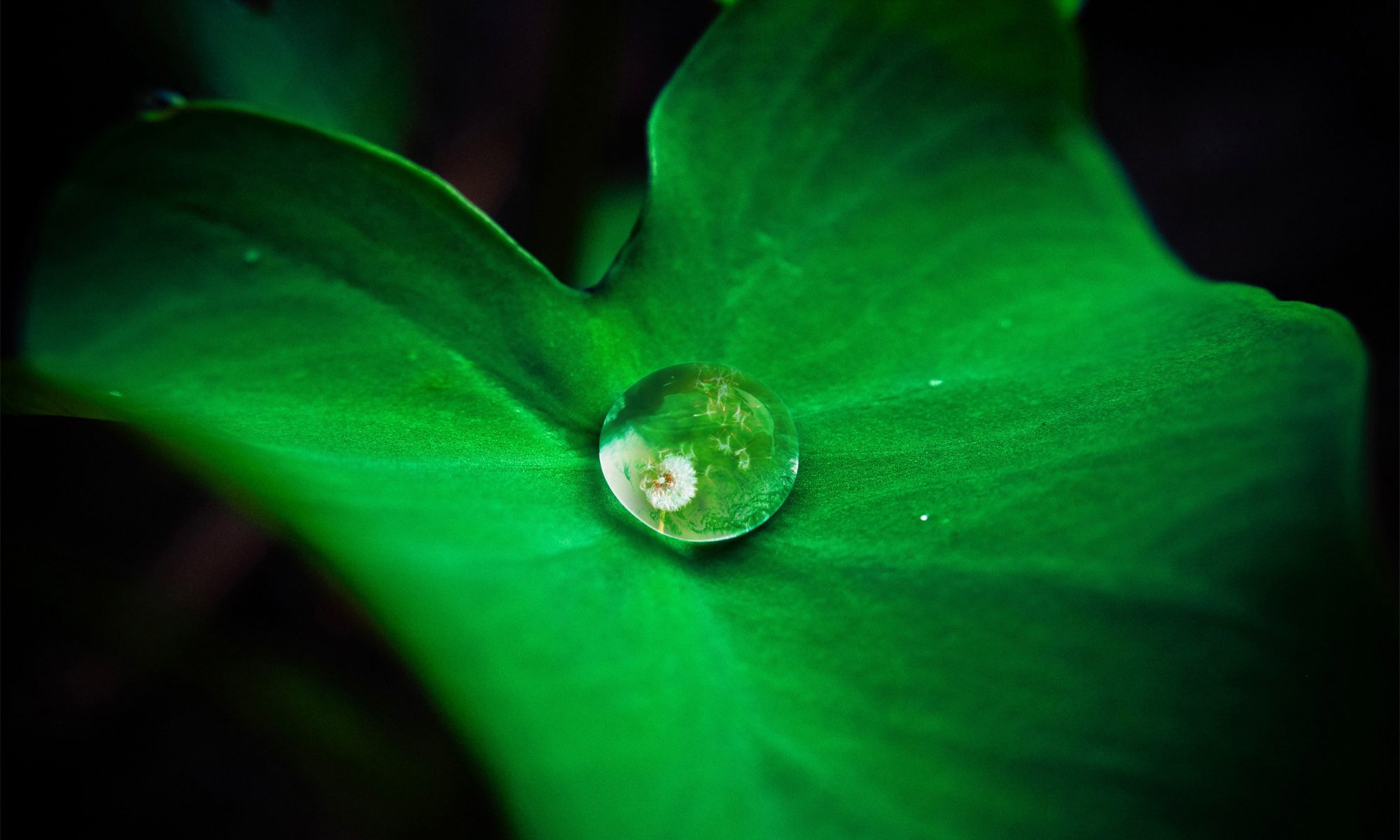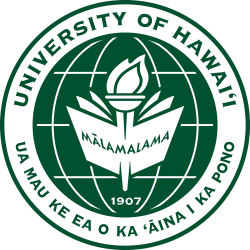
Land and sea, nature and culture are inseparable dualities on islands. Therefore during my PhD, I developed a novel linked land-sea decision support tool at a spatial scale relevant to Pacific Islands, which improved our understanding of the effects of climate change and local human activities (urbanization, agriculture, and fishing) on freshwater, terrestrial and marine resources. We applied it in areas with active community-based management in Hawai‘i and Fiji. Through scenario planning, it can assist decision-makers to identify where local conservation actions (forest conservation or marine closures) can foster coral reef resilience to climate change. My research showed that coral reef conservation cannot be effective without accounting for land-sea linkages and that local management can foster coral reef resilience to climate change. Another critical lesson from this research and development process was the need for collaborative research among resource managers, community members, and scientists to develop applied research, leverage multiple knowledge systems, and identify practical solutions to our environmental issues.
Rachel Dacks
 Coastal communities in the Pacific are often characterized by a history of disturbance, yet there is evidence that the use of knowledge, practice, belief systems, evolved over millennia, have allowed Pacific Island communities to become resilient in overcoming natural disasters.
Coastal communities in the Pacific are often characterized by a history of disturbance, yet there is evidence that the use of knowledge, practice, belief systems, evolved over millennia, have allowed Pacific Island communities to become resilient in overcoming natural disasters.
My research aims to understand how social-ecological resilience varies in coastal communities in Fiji across gradients of environmental, social, and economic conditions by addressing the following overarching questions: 1) What are drivers that link human communities to the coral reefs on which they depend, how are drivers linked, and how are drivers affected by external factors, including markets?, 2) What is the role of traditional ecological knowledge in enhancing resilience and adaptive capacity, 3) How do fishing practices (e.g., gear types and target species) vary across a gradient of market integration and what are the implications for coral reef ecological resilience?, and 4) How do intra-village sharing networks of fish and other natural resources vary across a gradient of market integration. To address these questions, I work in coastal villages across Fiji, using a mixed method approach. A range of qualitative and quantitative methods are being used for analysis, including structural equation models and social network analysis.
Tamatoa Bambridge
 National Center for Scientific Research (French CNRS)
National Center for Scientific Research (French CNRS)
PSL Research University: EPHE-UPVD-CNRS, USR 3278 CRIOBE
Laboratoire d’Excellence « CORAIL» [tamatoa.bambridge@criobe.pf]
Bio
A scientist with training in legal anthropology, Dr. Tamatoa Bambridge is a research director at the National Center for Scientific Research (CNRS) working in a laboratory of marine biology in Moorea since 2007. He has more than twenty years of field research experience in many of the archipelagoes of French Polynesia. More…
Eleanor Sterling
 American Museum of Natural History
American Museum of Natural History
Chief Conservation Scientist, Center for Biodiversity & Conservation
Core Affiliated Professor, Ecology Evolution & Environmental Biology, Columbia University
Affiliated Professor, Richard Gilder Graduate School
[sterling@amnh.org]
Bio
A scientist with interdisciplinary training in biological and social sciences, Dr. Eleanor Sterling was director of the American Museum of Natural History’s Center for Biodiversity (CBC) from 2000-2014 before moving to her current position and has more than thirty years of field research experience with direct application to conservation in Africa, Asia, and Latin America. She focuses her current work on the intersection between biodiversity, culture, and languages and the factors influencing resilience in biocultural approaches to conservation.More…
Toby McLeod
 Earth Island Institute’s Sacred Land Film Project [tm@sacredland.org]
Earth Island Institute’s Sacred Land Film Project [tm@sacredland.org]
Projects
Christopher (Toby) McLeod has been Project Director of Earth Island Institute’s Sacred Land Film Project since 1984. In 2013, he completed the four-part series Standing on Sacred Ground, which premiered on public television in April 2015. More…
Terry Hunt
 University of Oregon, Dean Clark Honors College, Professor of Anthropology [tlhunt@uoregon.edu]
University of Oregon, Dean Clark Honors College, Professor of Anthropology [tlhunt@uoregon.edu]
Bio
Prior to his current appointment at the University of Oregon as Dean of the Clark Honors College and professor of anthropoloy, Dr. Hunt taught for 24 years at University of Hawai`i, where he served as the Director of the University of Hawai`i Honors Program. In this position, Dr. Hunt had responsibility for oversight of honors offerings across the entire campus. He earned a Bachelor’s degree from the University of Hawaiʻi, Hilo; a Master’s degree from the University of Auckland (New Zealand), and a Ph.D. in Anthropology from the University of Washington.More…
Vilsoni Hereniko
 University of Hawaiʻi Academy for Creative Media [vili@hawaii.edu]
University of Hawaiʻi Academy for Creative Media [vili@hawaii.edu]
Bio
Vilsoni Hereniko received his Ph.D. from the University of the South Pacific (USP) in 1991. He moved soon after to the University of Hawai`i (UHManoa) where he taught Pacific literature and film. In 1997 he received the Elliot Cades writing award for his “significant body of work of exceptional quality.” In 2000 the UHManoa awarded him with a Presidential Citation for his teaching. In 2005 Cambridge University awarded him a Fellowship with Corpus Christi College.More…
Christian Giardina
 Institute of Pacific Islands Forestry, Pacific Southwest Research Station, USDA Forest Service [cgiardina@fs.fed.us; giardina@hawaii.edu]
Institute of Pacific Islands Forestry, Pacific Southwest Research Station, USDA Forest Service [cgiardina@fs.fed.us; giardina@hawaii.edu]
Bio
I am currently a research ecologist with the Institute of Pacific Islands Forestry in Hilo, Hawaii. I received my BS in Zoology with a minor in Political Science from Duke University. Following several years of working with homeless youth in New York City and then Denver, I went on to study non-violence and social change with Drs. Vincent Harding and Sudarshan Kapur at the Iliff School of Theology, where I received my MA in Religion (1993). Following completion of thesis work examining linkages between Miskito Indian autonomy and resource management in Northern Atlantic Autonomous Region, Nicaragua, I went on to complete an MS in forestry (1996) at Colorado State University, where my thesis work focused on sustainability of forest management practices in Oregon and Wyoming. After completing my MS, I completed a PhD in biology (1999) from the University of Denver, where my dissertation research focused on the sustainability of traditional agroforestry practices in Jalisco, Mexico. Following a post-doc at the University of Hawaii at Manoa looking at the ecology of intensively managed forests, I went on to a position with the USDA Forest Service looking at climate change effects on forests from stand to landscape scales.More…
Christopher Dunn
 Cornell University, Cornell Plantations [cpd55@cornell.edu]
Cornell University, Cornell Plantations [cpd55@cornell.edu]
Bio
Christopher Dunn was named the Elizabeth Newman Wilds Director of Cornell Plantations in April 2014. Prior to this appointment, he was Director of the Lyon Arboretum at the University of Hawai‘i. He previously served as Executive Director for Research at the Chicago Botanic Garden (where he managed one of the largest botanic garden research programs in the country) and as Director of Research at The Morton Arboretum. He received his undergraduate training at SUNY College of Environmental Science & Forestry, Syracuse University, and his PhD at the University of Wisconsin, Milwaukee. He then spent three years completing postdoctoral studies at the University of Georgia.
Projects
Dr. Dunn is a botanist and conservation ecologist who has considerable research experience studying the relationships between people and places, and human impacts on the landscape. More recently, he has been studying the intersection of biological and cultural conservation, particularly in the Pacific Rim. He led the effort to establish a Center for Biocultural Studies at the University of Hawaiʻi at Mānoa which has culminated in the Biocultural Initiative of the Pacific. He has served on various boards, including the American Public Gardens Association (for which he served as President), and is presently Vice Chair of Terralingua, an international nonprofit organization concerned about the future of the world’s biological, cultural, and linguistic diversity. Dr. Dunn is active in several international conservation organizations, including the International Union for the Conservation of Nature and Botanic Gardens Conservation International. Currently, he holds adjunct faculty status at Northwestern University, the University of Illinois–Chicago, and in the Graduate Faculty in Botany at the University of Hawai‘i.
Wade Davis
 National Geographic Society Explorers Council and University of British Columbia [wade.davis@ubc.ca]
National Geographic Society Explorers Council and University of British Columbia [wade.davis@ubc.ca]
Bio
Wade Davis is Professor of Anthropology and the BC Leadership Chair in Cultures and Ecosystems at Risk at the University of British Columbia. Between 1999 and 2013 he served as Explorer-in-Residence at the National Geographic Society and is currently a member of the NGS Explorers Council. Named by the NGS as one of the Explorers for the Millennium, he has been described as “a rare combination of scientist, scholar, poet and passionate defender of all of life’s diversity.”More…

